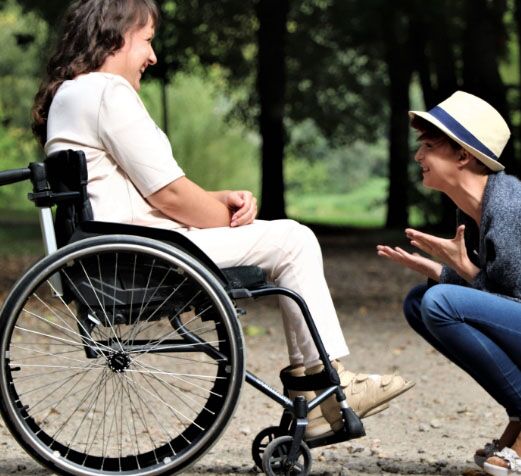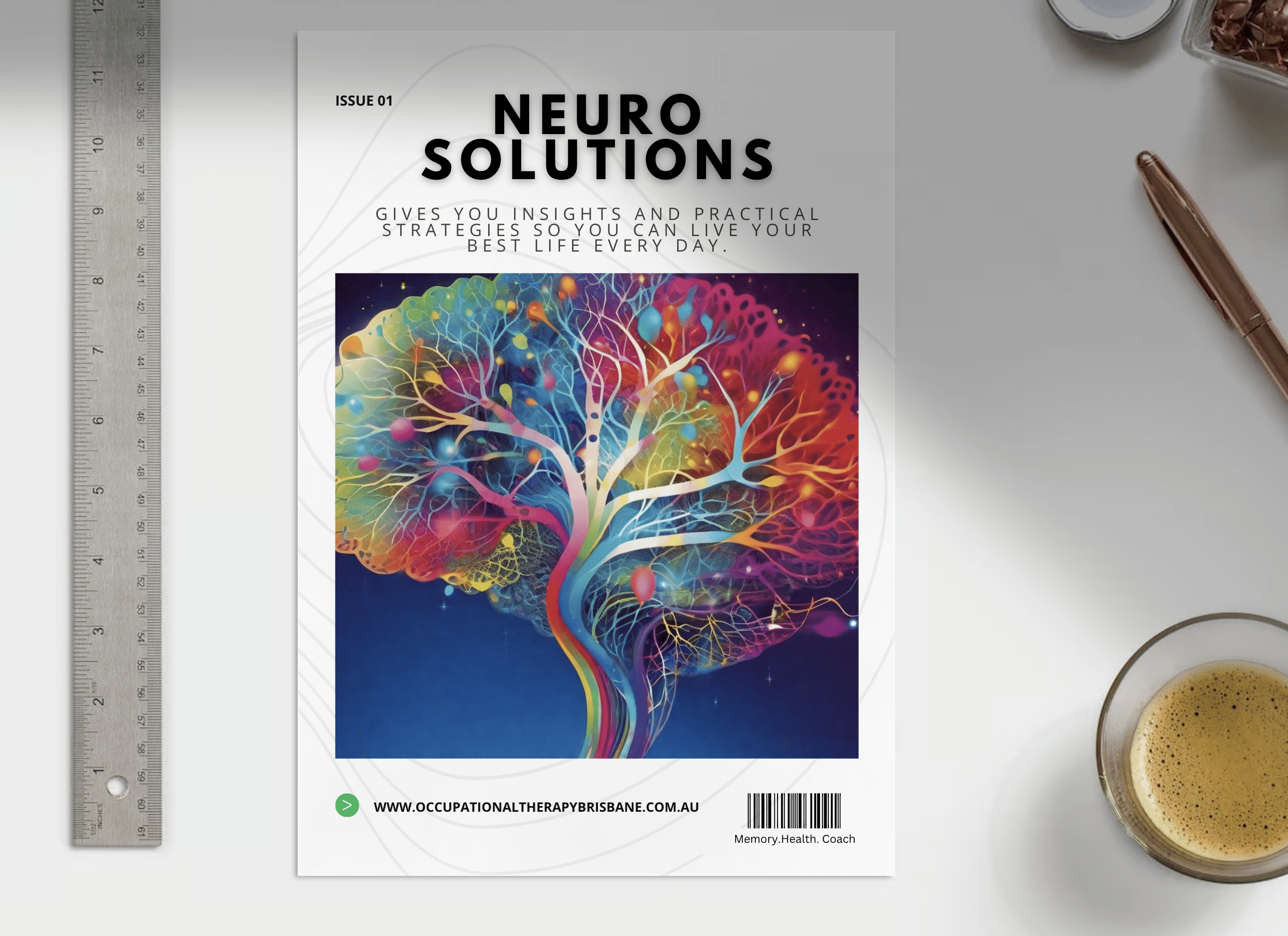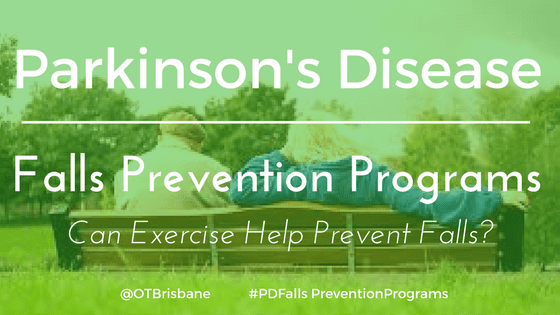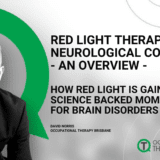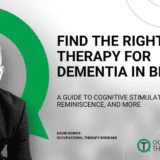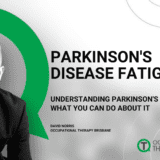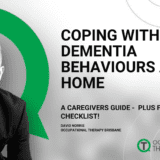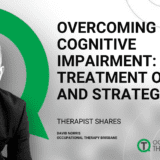Parkinson’s Disease Falls Prevention Programs: Do PD exercise programs prevent falls?
I received another call from “John’s” wife, again. It was the call of solidarity that John had had another fall. Despite his Parkinson’s Disease exercises, his falls experience was too numerous to count. Parkinson’s Disease falls prevention programs were a priority for John and his wife and no doubt many other people living with PD. So what works?
Over time there had been minor and major consequences of John’s falls. It was clear, each fall
- eroded his confidence, and
- reduced his and his wife’s motivation to go out into the world and so their world become smaller.
You see, John came late to us.
Late that is in the his PD symptom experience. He’d had far too many falls along the way. They were big flags along his history which cried out for a fall prevention response, much earlier. You see, the common clinical assumption is that falls only occur on the mid to end stages of the PD.

Parkinson’s Disease and Falls Prevention
Not so according to new research out of Norway.
- In this study a quarter of all people recently diagnosed with PD will have a fall in the first year.
This challenged the research team out of Norway who investigated Parkinson’s Disease exercises and how it can prevent falls. They expected to find that falls occur later stages of the disease process, instead it appears to occur much earlier.
Our OT Brisbane practice for years have worked alongside clients who have fallen frequently especially at the later stages of the disease. The research also posed the question as to whether it’s possible to prevent or reduce falls at the later stages of the disease.
Parkinson’s Disease Falls Prevention Programs
No doubt there is a lot in day to day living which challenges your balance, coordination and strength. For people who experience Parkinson’s Disease, maybe like you, the day to day tasks can feel like a battle with a titan. With any given moment a threat being upended onto the floor.
Whether it is getting out of bed, managing the groceries out of the car, walking with the dog, dodging obstacles, getting off public transport, up and down the stairs, you’d agree there is a lot going on.
Parkinson’ Disease symptoms can affect a freezing of movement, a slowness to respond or difficulties to coordinate the body to the unexpected and this can lead to a fall.
Parkinson’s Disease and The Symptoms
- PD is a chronic neurological condition which progresses over time with people experiencing commonly movement and non-movement symptoms. What one person experiences is entirely different to the next.
- The disease is more common as we get older: PD is diagnosed more frequently in the 6-7-and 8th decades of life.
- The ageing of the population will compound the number of people experiencing PD. It’s predicted people living with PD will double in the next 15years
- Parkinson’s Disease exercise has been shown to have a positive impact on symptoms ( see )
Ylva Hivand Hiorth physiotherapist and researcher of University of Stavanger reports the key finding of their study as:
- If you’ve had a fall you’re more likely to have another fall
- Despite PD medication, people still fall
- Grouping PD symptoms allowed the research team to identify sub types who were likely to fall in the first year after diagnosis. What stood out were the subgroup without tremours as a dominant symptom.
- Suggest Tai Chi as a beneficial exercise
- It is unresolved how exercise may mediate falls in the later stages of the disease.
In summary of the article
- Encourages early identification of people with PD at risk of having a fall.
- Parkinson’s Disease exercises may have a role in the Parkinson’s Disease falls prevention program within the first year of diagnosis/ early stages of the disease.
- There was little detailing of what Parkinson’s disease exercise were beneficial. This was a little disappointing.
- A Class III study listed in the references demonstrated: An exercise program targeting balance, leg strength, and freezing of gait did not reduce falls but improved physical and psychological health. Falls were reduced in people with milder disease but not in those with more severe Parkinson disease. So there jury is still out on whether there is a direct benefit of exercise and falls prevention
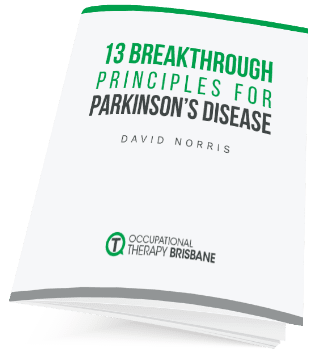
FREE REPORT:
13 Breakthrough Principles ForParkinson’s Disease
Discover how these 13 neuro-plasticity actions can help you manage your Parkinson’s disease symptoms.
At Occupational Therapy Brisbane the services will go beyond just exercises to achieve a holistic Parkinson’s Disease falls prevention programs. What you can expect is an analysis and action plan to address the falls risks for you. This maybe factors in your
- home environment,
- every day equipment. This could be as simple as your bed or chair
- your clothing
- your daily tasks and routine
- your medication use: We work with you your GP and Neurologist regarding your medication use.
- overall movement and non movement skills
So call us today today to discuss your situation and lets see if we can help reduce our falls risks. Call 1300 783 200 to arrange a 10min phone consultation.
More blog articles you may be interested in:
- Assistive technology for Parkinson’s Disease: Does it improve movement and function?
- Parkinson’s Disease Treatment: How You Can Delay The Decline
Article Sources:
- Exercise helps prevent falls in Parkinson’s patients
- Exercise for falls prevention in Parkinson disease: a randomized controlled trial
- As cited in Science Daily: Exercise helps prevent falls in Parkinson’s patients
The Occupational Therapy Blog is a news and health promotion initiative. It by no means aims to be a source of medical or therapeutic advice. We enjoy sharing information and will attempt to curate it as best we can. You’d appreciate we like to lighten our blog articles which often tackles very serious and personal issues. It’s our way of sharing. The information contained on this blog is not intended to be a substitute for professional advice, or intervention. Always seek the advice of your GP or qualified therapist with any questions you may have regarding your personal situation. Never substitute or delay seeking professional advice because of information you’ve read on this website.


